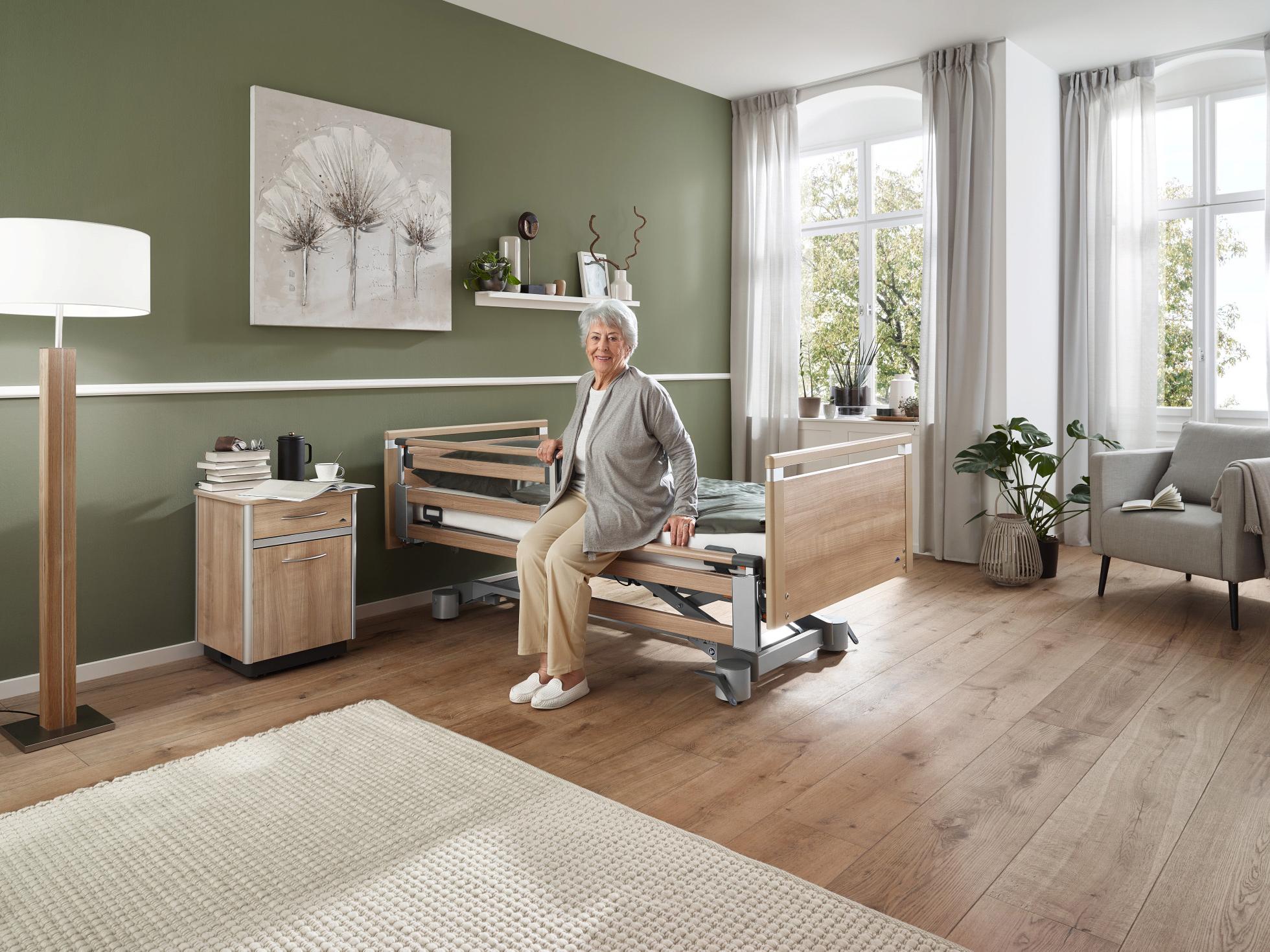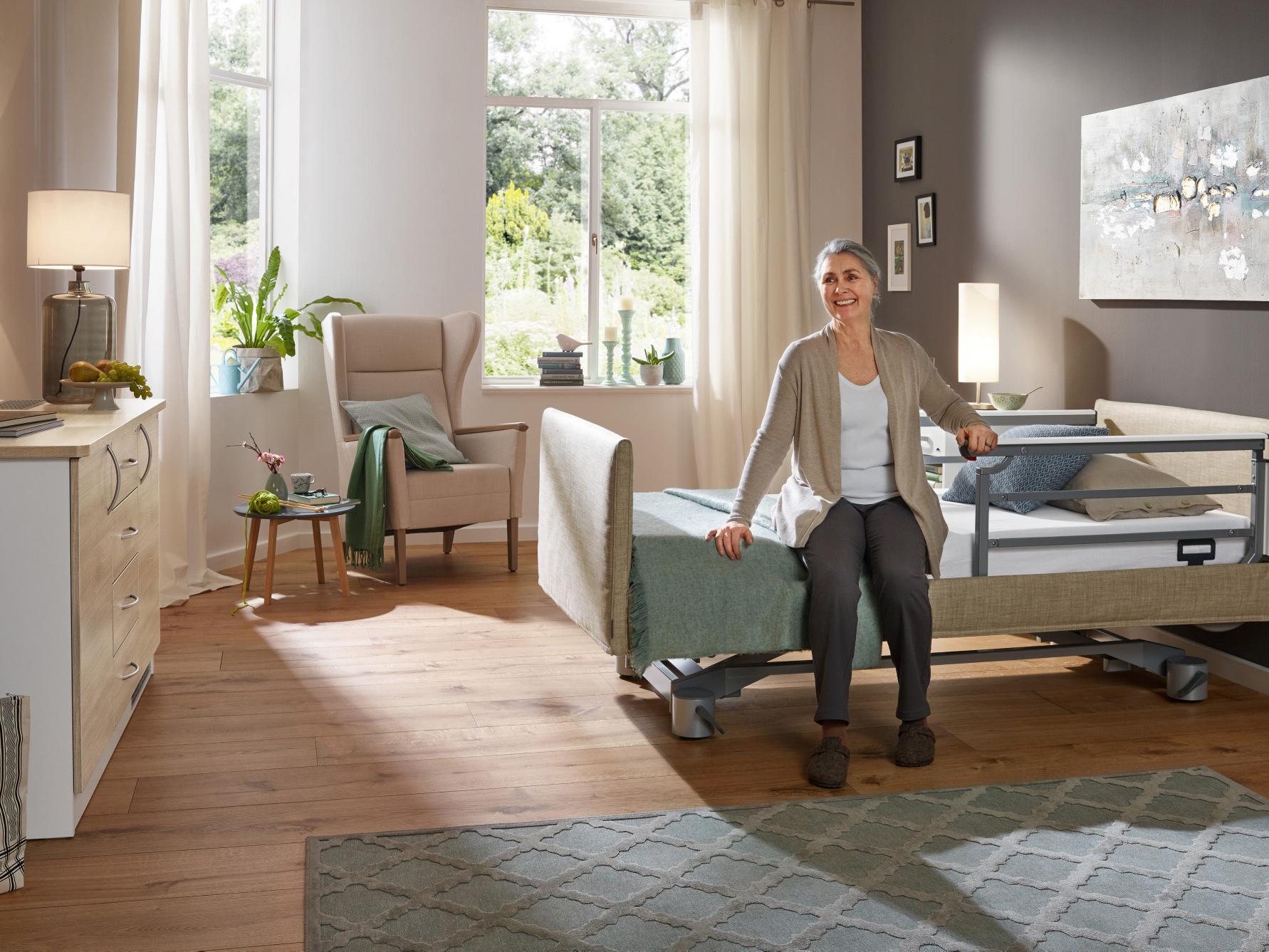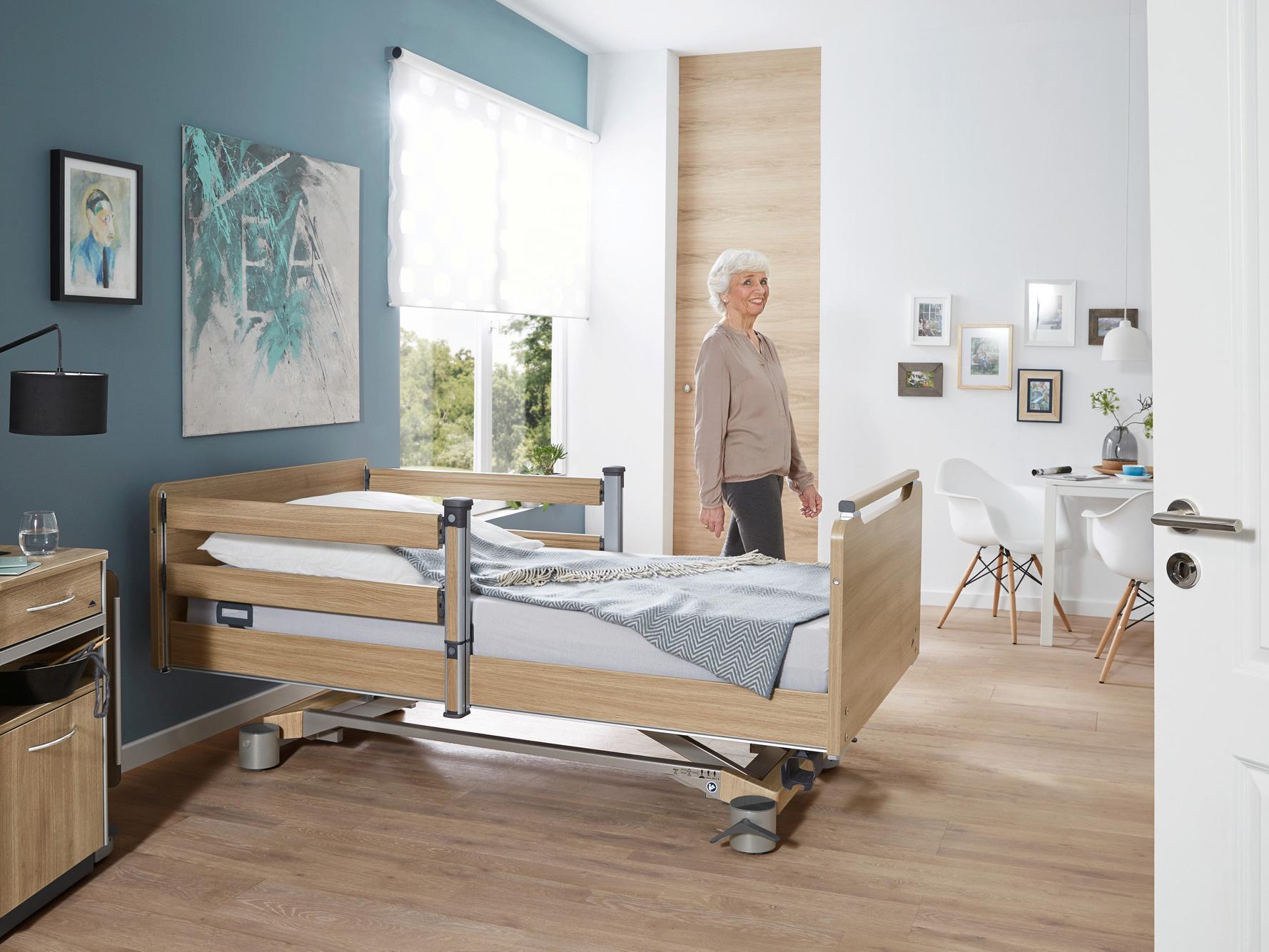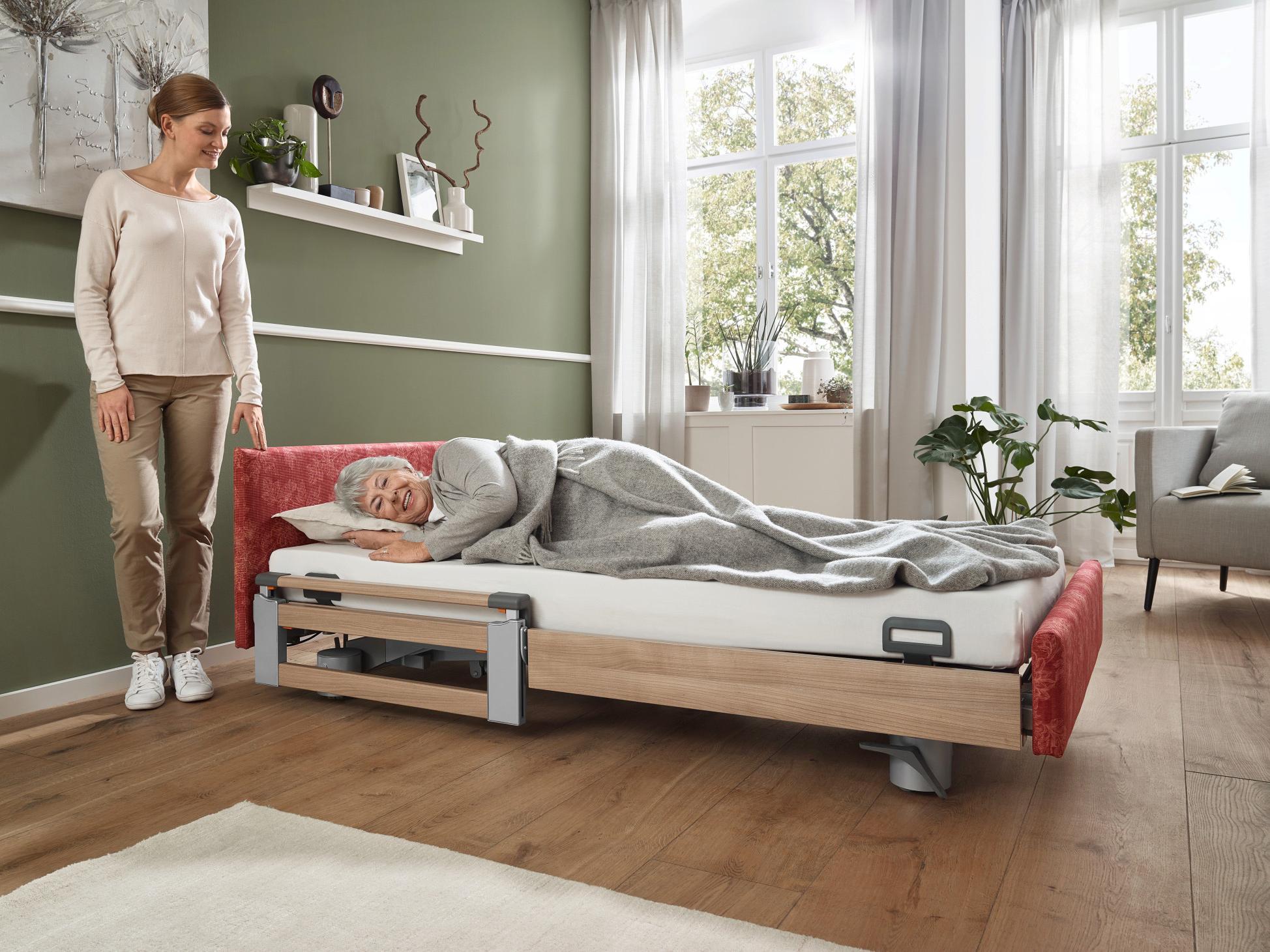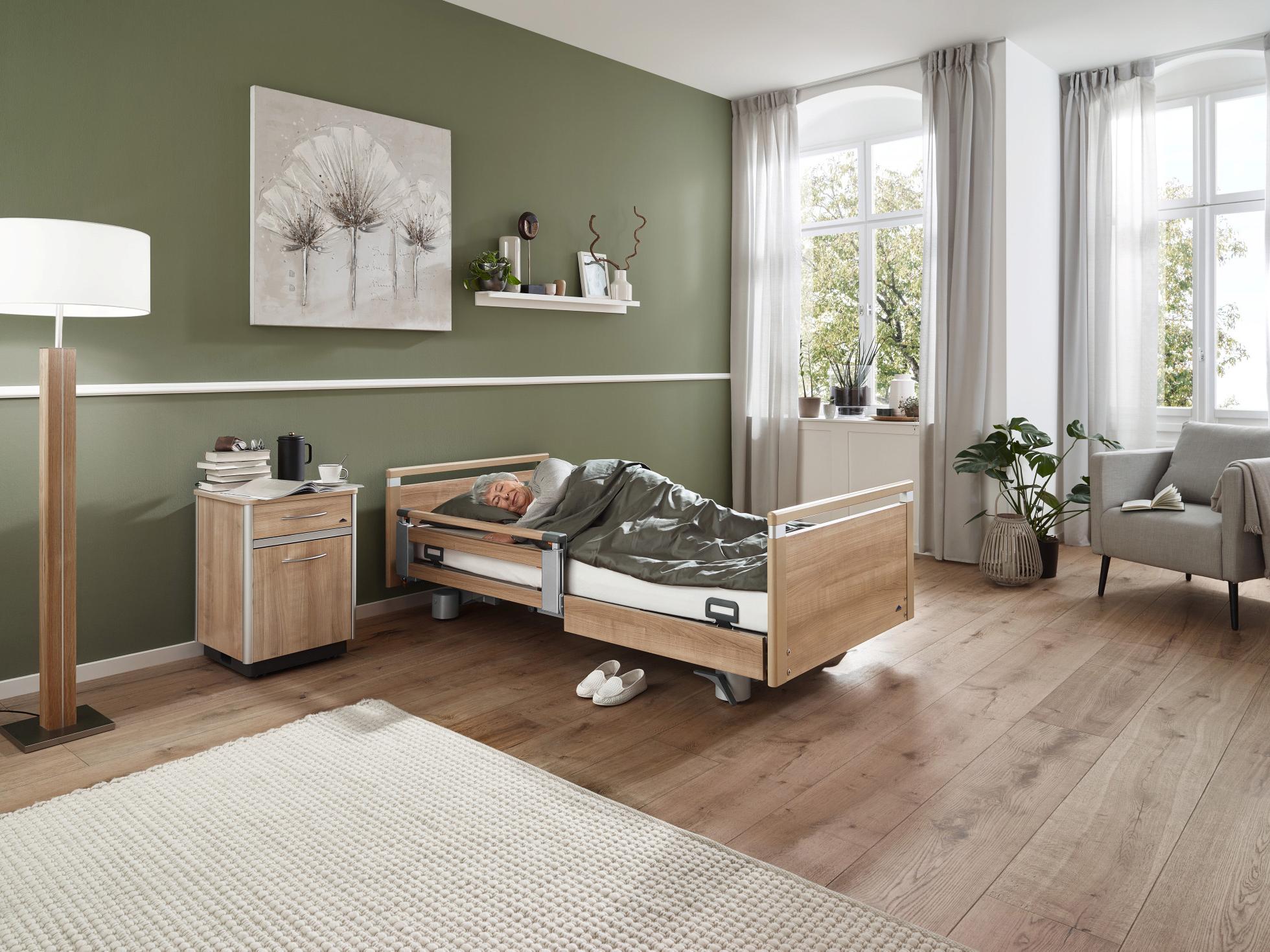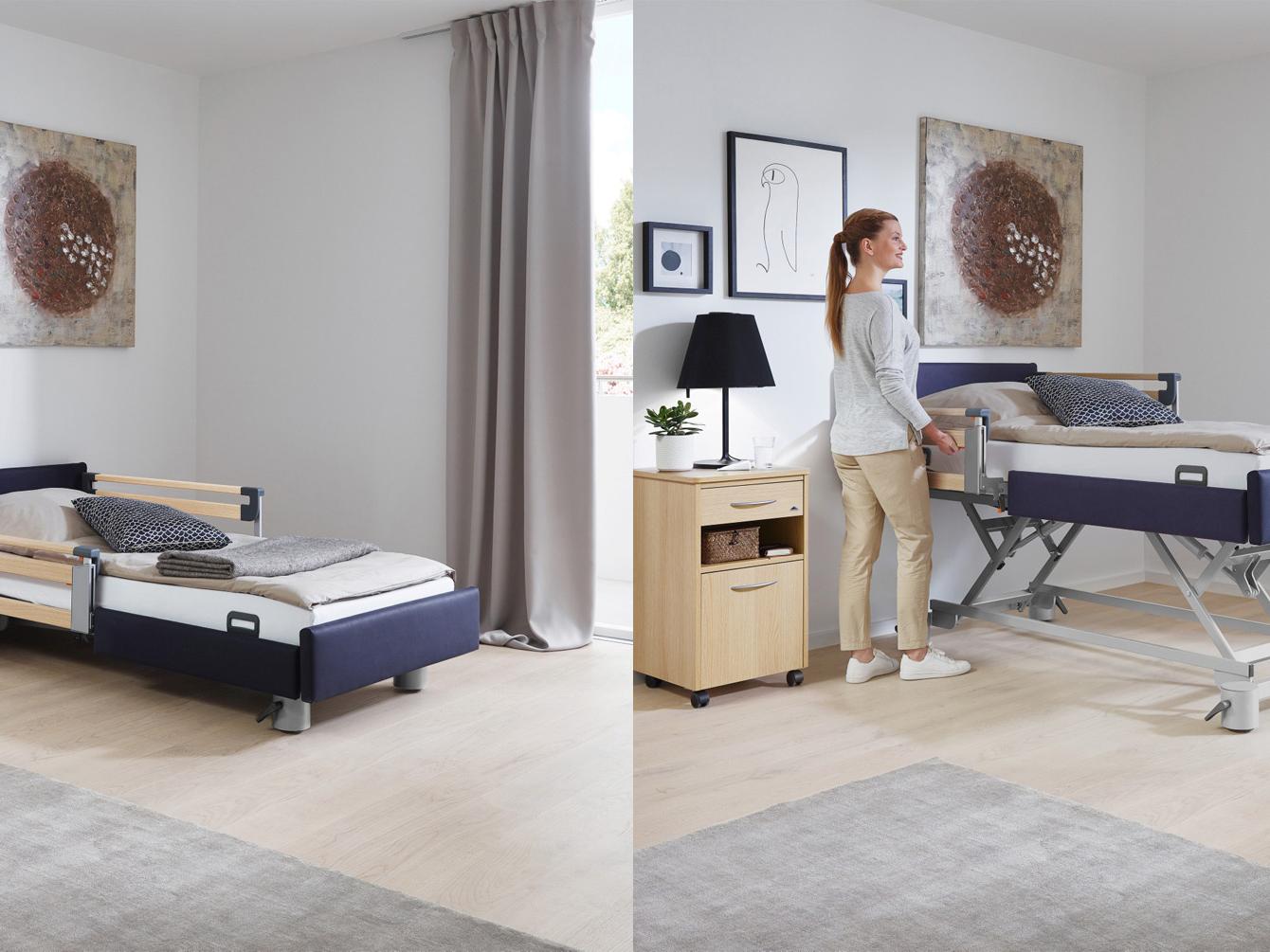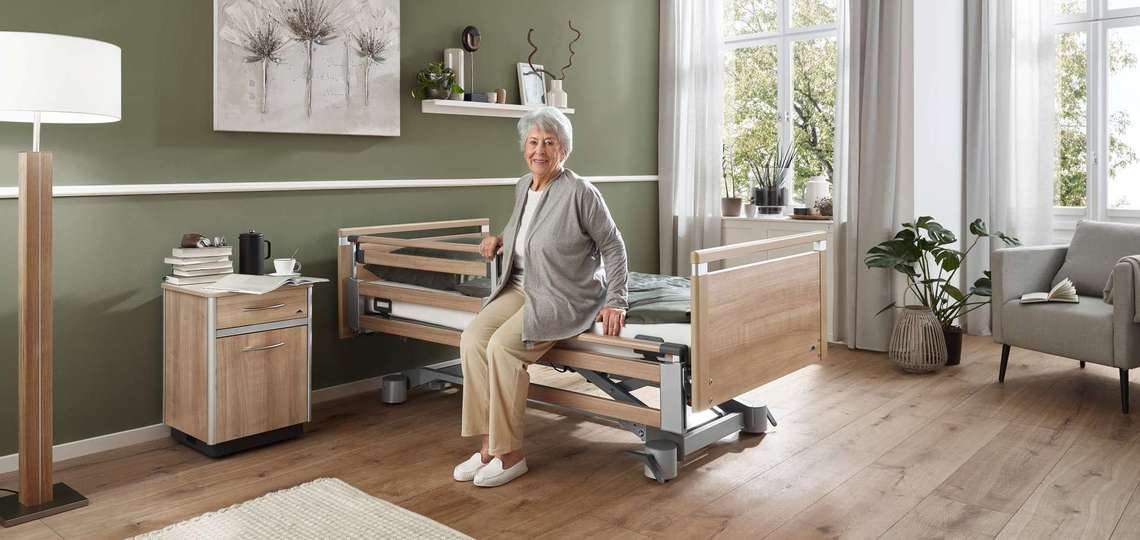
"Everyone has the right to fall"
Interview with Prof. Dr. Volker Großkopf about fall prophylaxis in nursing homes
Falls often occur in nursing homes at the resident's bed. Safety sides are often used to compensate for this risk. Which legal consequences this can have in Germany and which other possibilities are available describes Professor Dr. Volker Großkopf in the following interview.
What are the most common liability problems in nursing homes?
This question is relatively easy to answer. There is a clear leader in the field of liability, namely the topic "fall". This is due to the fact that not only do the fallen and injured residents show willingness to sue in this segment, but also the cost bearers regularly try to recover the costs of injuries requiring treatment due to fall events from the facilities.
How can such liability situations be prevented?
This is a very good question, because offset for the risk of falls is often provided by measures involving deprivation of liberty. Irrespective of the fact that, according to the updated German expert standard "Fall prophylaxis", a measure involving deprivation of liberty tends to increase the risk of the person concerned falling, and is therefore not an effective means of prophylaxis, it is used again and again. It can still be observed that some institutions want to avoid the sword of Damocles of liability claims for a fall accident by depriving their residents of their liberty. And preferably at night.
Namely when the resident gets up from his bed to go to the toilet and falls on this way or rolls out of bed due to restlessness and contracts fractures. In order to avoid these situations, the so-called side elements are often used as safety measures, which - even if they are split - can represent a measure involving deprivation of liberty. From a criminal law perspective, deprivation of liberty always occurs when the affected resident is unable to move out of bed on his or her own. Such an obstacle can also be a split side element. With the use of safety sides or other measures involving deprivation of liberty, it must therefore always be ensured that a legitimation for this exists. The safest means of legitimising the implementation of measures involving deprivation of liberty is to obtain the consent of the resident if he or she is still able to reason.
This approach is based on the German legal structure of § 239 StGB. The special feature of the offence of deprivation of liberty is that the consent of the person concerned already excludes the application of the offence. In other words, those who consent to a deprivation of liberty cannot be deprived of their liberty in the first place. To make it quite clear: deprivation of liberty is not possible with the consent of a resident that is still officially able to reason.
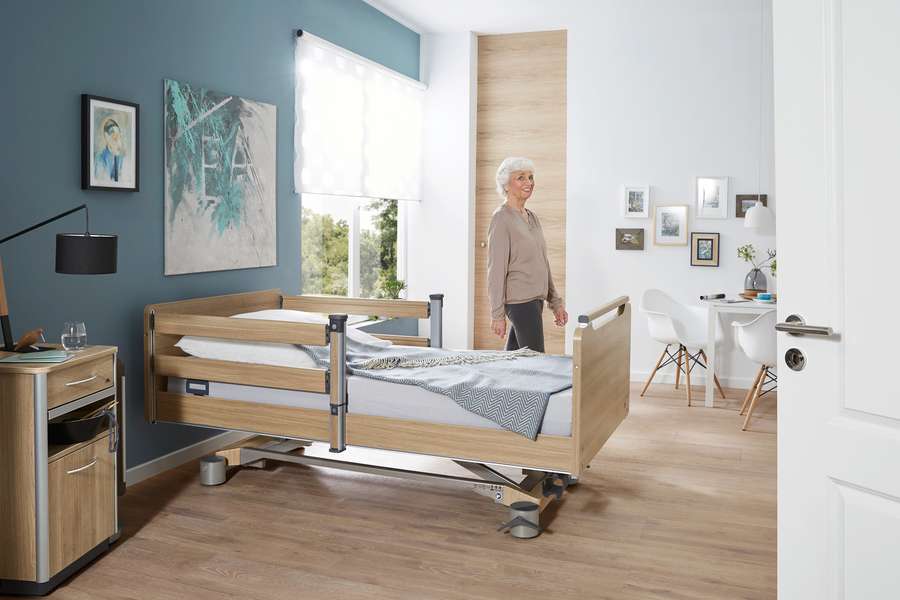
But what happens if the resident does not agree to a measure involving deprivation of liberty?
At this point, I would like to emphasise once again that measures involving deprivation of liberty are not the answer to everything, but that they may in principle only be applied as a last resort, i.e. as the last available means. First of all, we should try to offset the risk of falls with other available measures. And here the resident's bed and its variability plays a very important role. There are care beds available on the market whose equipment is geared to the individual needs of the resident. For example, if side elements are required, they can be easily added or removed if required. In this way, the freedom-restricting element of the safety sides is only perceived by the resident in the case of a fall. Of course, a good bed should also be height-adjustable so that it can be moved as far as possible to the level of the floor. With such so-called "low-height or low beds", care close to the floor can be practiced, whereby - most favourably in combination with a fall mat - the fall and thus the fall consequences can be avoided. And this without depriving the resident of his or her freedom, i.e. that he or she lies behind a lattice or, even worse, is tied up or otherwise fixed.
Motion detectors or exit sensors integrated into the bed - so-called out-of-bed systems - also promise relief. If the resident leaves the bed, this is signalled by automated information. The notified nurse then has the option of looking in the resident’s room and averting possible dangers from the him or her. The resident often does not actively call the nursing staff because he or she does not want to put additional burden on them, who are already under great strain. It is important in this context, however, that the use of such reporting systems does not require judicial approval, but from the point of view of the right to informational self-determination, the consent of the resident or his guardian must be obtained.
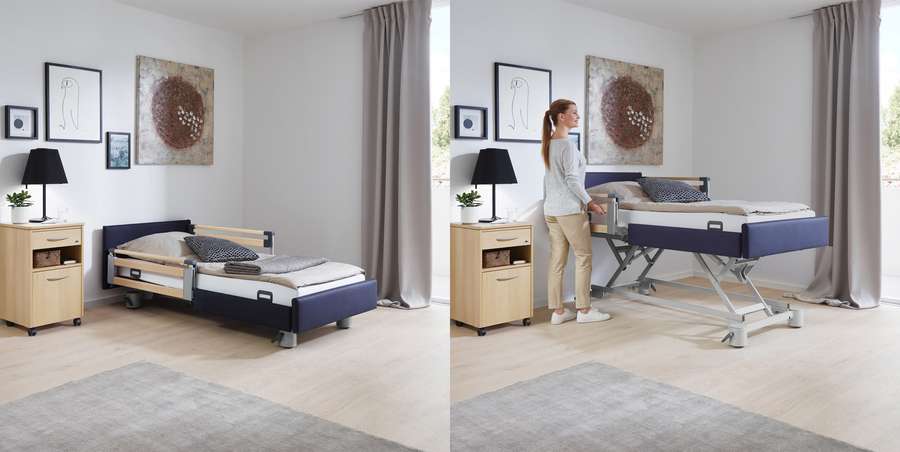
At this point I would like to point out that measures involving deprivation of liberty, if the resident is not able to give his or her consent, must always be legitimised by the consent of the guardian. If the deprivation of liberty should take place over a longer period of time, or take place regularly, i.e. if one pulls up the safety side elements every evening, the consent of the guardian must still be additionally legitimised according to § 1906 Abs. 4 BGB by the German guardianship court.
Finally, it should be mentioned that the resident can refuse treatment and care measures to offset the risks, in this case fall risks, if he or she is still able to reason and has been informed about the dangerous situations associated with his or her refusal. This rejection is to be considered even if it seems unreasonable. For this reason, no smoker in Germany is placed under guardianship. If we apply this principle to falls, one could say that everyone has the right to fall.
Dear Prof. Großkopf, thank you very much for this informative discussion. The remarks give the protagonists in the German health system a great deal of help in circumventing the legal problem areas in the area of measures involving deprivation of liberty and at the same time preserving and protecting the right of residents to self-determination and freedom.

Prof. Dr. Volker Großkopf became the chair of law in the Department of Health Science at Cologne Catholic University of Applied Sciences in 2001. The focus of his work is liability issues for care staff. Together with Michael Schanz, he co-founded the publishing house G&S-Verlag GbR in 2003, which publishes the professional magazine for health law, “Rechtsdepesche”.

